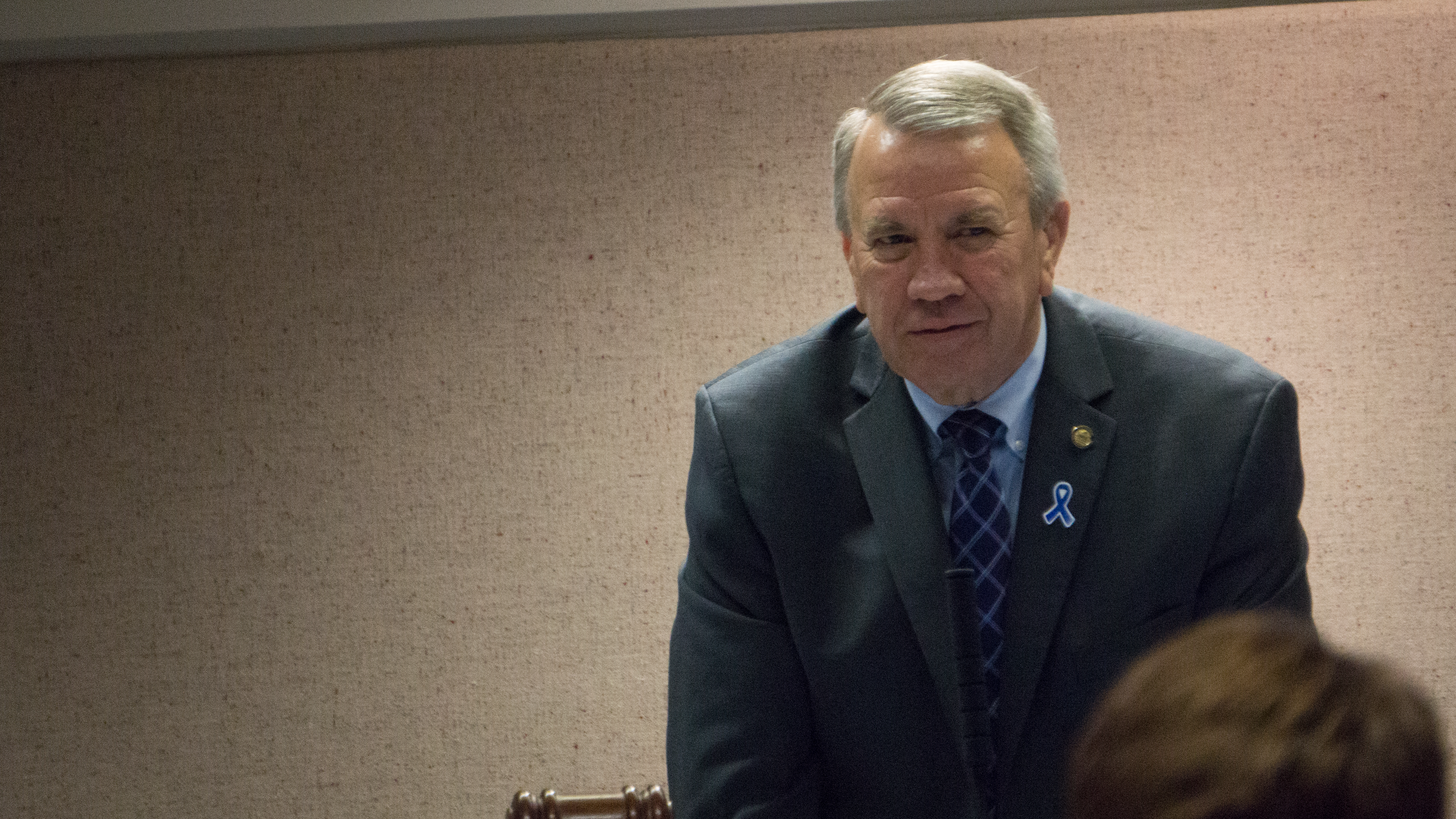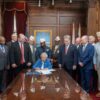After Alabama Governor Kay Ivey signed an agreement to lease two new prisons from the private consortium CoreCivic, Alabama House Speaker Mac McCutcheon, R-Monrovia, told reporters Thursday that the House of Representatives was drafting a bill to pay for prisons with a bond issue.
McCutcheon said that the Legislature is still studying Ivey’s plan, but did say that representatives were in the process of drafting a bill and suggested that they “may drop” that bill in the Legislature for consideration.
“We want to see some information on a lease agreement,” McCutcheon told reporters. The CoreCivic lease agreement calls for two mega-prisons, but McCutcheon said that a separate agreement for a third mega-prison could be signed soon.
“The House does have a backup plan,” McCutcheon said.
According to the speaker, legislators were concerned that under the governor’s plan, the state would never own the facilities and buildings, and members thought that they could get a better deal from the bond market.
When APR asked if the Legislature could simply block the Ivey lease contracts in the Contract Review Committee, McCutcheon said: “Our attorneys have indicated to us that it is not subject to Contract Review.” McCutcheon did say that they did not want to do anything that would hurt the state in the Department of Justice lawsuit.
“We do have a lawsuit hanging over our heads,” the speaker said.
The Department of Justice, under then-President Donald Trump, during its last weeks, filed suit against the state of Alabama, arguing that the conditions in the Alabama Department of Corrections are so bad that incarceration by the state constitutes a “cruel and unusual punishment” under the U.S. Constitution.
The ADOC has been under federal investigation since 2016 when the Justice Department under President Barack Obama launched a formal probe into conditions in Alabama’s prisons. In 2018, then-Attorney General Jeff Sessions released a report that declared that the Alabama prison system was the most dangerous system in the country.
As early as 2015, then-Gov. Robert Bentley came to the Legislature and asked them to draft a bond issue to pay for four new prisons. No bill was passed. Bentley came back with that proposal in 2016 and 2017. When Bentley resigned rather than be impeached, Ivey asked the Legislature to draft a bond issue in 2017. Still, there was no action.
By 2019, Ivey signaled that she would go it alone and do the prisons as a lease build to avoid having to ask the Legislature for funding and would simply sign a lease agreement as the chief executive of the state. The Department of Corrections asked private corporations to bid on the new facilities. Still, the Legislature did not come forward with a bond issue plan in the 2019 or 2020 legislative sessions.
The Bentley plan for four new mega-prisons was originally supposed to cost $1.5 billion, but after years have passed and construction and finance costs have risen, the three new prisons could cost as much as $3 billion, $500 million more than what the ADOC estimated when it went into negotiations with the private consortiums that would build and maintain the three new mega-prisons in Bibb, Elmore and Escambia counties.
Thursday was day three of the Alabama 2021 Legislative Session.











































